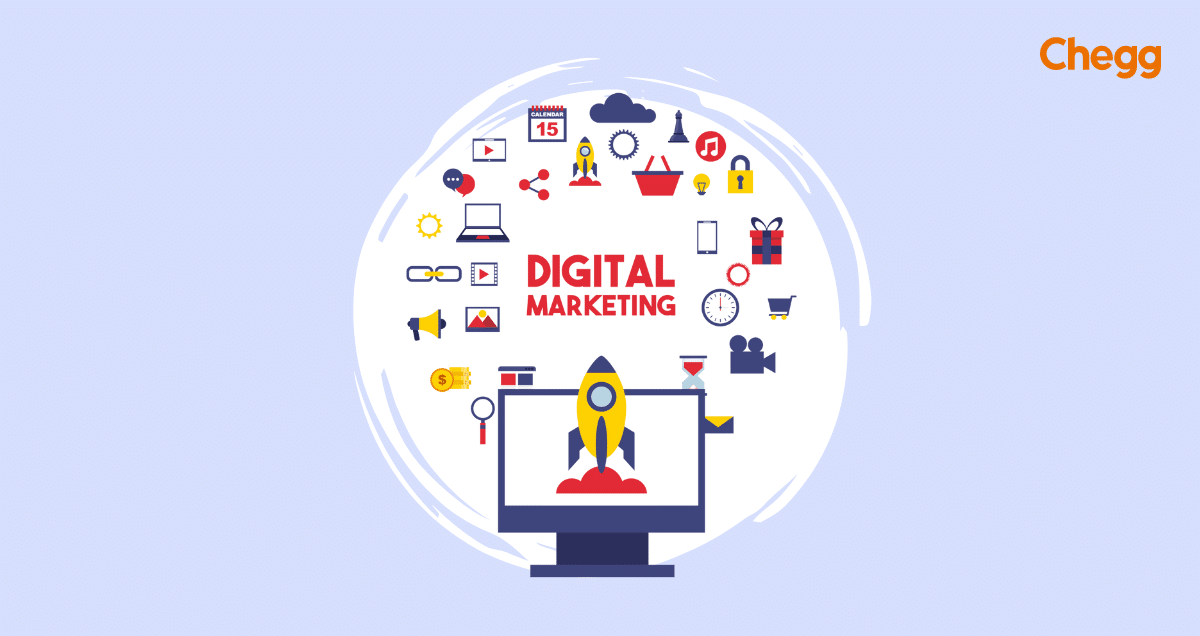Business Analyst Vs Data Analyst: Unlock the Key Differences for Clarity 2025
A business analyst is a professional who bridges the gap between business needs and technology solutions. They focus on understanding organizational processes, identifying areas for improvement, and proposing strategies to enhance business performance. Business analysts work closely with stakeholders to gather requirements, define goals, and develop plans that align with overall business objectives. Their role […] The post Business Analyst Vs Data Analyst: Unlock the Key Differences for Clarity 2025 appeared first on Chegg India.

A business analyst is a professional who bridges the gap between business needs and technology solutions. They focus on understanding organizational processes, identifying areas for improvement, and proposing strategies to enhance business performance. Business analysts work closely with stakeholders to gather requirements, define goals, and develop plans that align with overall business objectives. Their role often involves creating reports, documenting workflows, and recommending solutions that help companies operate more efficiently and profitably.
On the other hand, a data analyst is primarily concerned with interpreting raw data to uncover patterns, trends, and insights. They use statistical tools, programming languages, and data visualization techniques to analyze datasets and support decision-making. Data analysts work closely with large volumes of structured and unstructured data to provide actionable insights, often in the form of dashboards or reports. While both roles rely on analytical thinking, business analyst vs data analyst differs in their focus—business analysts emphasize strategic decision-making and process improvement, whereas data analysts concentrate on data interpretation and quantitative analysis.
What is the main role of business analyst vs data analyst?
The main role of a business analyst is to identify business needs, analyze processes, and recommend solutions that help organizations achieve their goals. They act as a bridge between stakeholders and technical teams, ensuring that project requirements align with business objectives. In contrast, a data analyst focuses on collecting, cleaning, and analyzing data to uncover trends and insights. Data analysts use statistical tools and visualization techniques to support data-driven decision-making. While business analysts emphasize strategy and communication, data analysts concentrate on technical data exploration and interpretation. Together, both roles complement each other to drive effective business solutions based on accurate data insights.
Business Analyst Vs Data Analyst: Role
Business Analyst
- Identifies Business Needs: A business analyst evaluates the current operations of an organization to uncover areas that need improvement or change, often by engaging with stakeholders across departments.
- Defines Solutions: They translate business problems into actionable solutions—such as new systems, processes, or strategies—ensuring these align with the organization’s goals.
- Bridges the Gap Between IT and Business: Acting as a liaison, business analysts communicate technical requirements to IT teams and relay business expectations to developers, ensuring smooth project execution.
Data Analyst
- Collects and Cleans Data: A data analyst gathers raw data from various sources and cleans it to ensure accuracy and consistency, preparing it for meaningful analysis.
- Performs Data Analysis: Using tools like Excel, SQL, or Python, data analysts examine data to uncover patterns, trends, and insights that inform decision-making.
- Creates Reports and Visualizations: They turn complex data findings into clear, digestible reports and dashboards, helping stakeholders understand key metrics and performance indicators.
Business Analyst Vs Data Analyst: Educational Qualification
- To become a data analyst, a strong foundation in mathematics, statistics, and computer science is essential. Most data analysts hold a bachelor’s degree in fields such as Data Science, Statistics, Mathematics, Computer Science, or Information Technology.
- In addition to academic qualifications, proficiency in tools like Excel, SQL, Python, R, and data visualization platforms like Tableau or Power BI is often required. Some professionals also pursue specialized certifications or a master’s degree in Data Analytics or a related discipline to enhance their skills and job prospects in this competitive field.
- A business analyst typically holds a bachelor’s degree in Business Administration, Management, Finance, Economics, or a related field. Since their role involves understanding business operations and aligning them with technology solutions, a mix of business knowledge and analytical thinking is crucial.
- Many business analysts also pursue certifications like the CBAP (Certified Business Analysis Professional) or PMI-PBA (Professional in Business Analysis) to validate their expertise. Some may opt for an MBA or a master’s degree in Business Analytics or Information Systems to advance into more strategic roles within organizations.
Data Analyst Vs Business Analyst: Skills
Data Analyst
- Requirement Gathering – Ability to identify and document business needs from stakeholders.
- Business Process Modeling – Proficient in mapping and analyzing workflows using tools like BPMN or flowcharts.
- Communication Skills – Clear verbal and written communication with technical teams and non-technical stakeholders.
- Stakeholder Management – Skilled in engaging and aligning different departments to project goals.
- Problem-Solving – Strong ability to identify business issues and recommend practical solutions.
- Analytical Thinking – Interpreting business data to support strategic decisions.
- Documentation and Reporting – Creating BRDs (Business Requirement Documents), use cases, and functional specifications.
- Knowledge of Business Tools – Familiarity with tools like Microsoft Visio, Jira, Confluence, and Trello.
- Understanding of SDLC & Agile – Knowledge of Software Development Life Cycle and Agile/Scrum methodologies.
- Basic Data Skills – Comfort with Excel, SQL, and interpreting basic reports or dashboards.
Business Analyst
- Data Cleaning and Preparation – Ensuring data accuracy by handling missing, duplicate, or inconsistent values.
- Statistical Analysis – Applying statistical methods to interpret and analyze data trends.
- SQL Proficiency – Writing queries to extract and manipulate data from relational databases.
- Excel Expertise – Using functions, pivot tables, and charts for basic data analysis.
- Programming in Python/R – Using languages like Python or R for data manipulation, analysis, and visualization.
- Data Visualization – Creating reports and dashboards using tools like Tableau, Power BI, or Matplotlib.
- Critical Thinking – Drawing meaningful insights and patterns from complex datasets.
- Understanding of Data Warehousing – Knowledge of how data is stored and managed in databases or cloud systems.
- Machine Learning Basics – Familiarity with regression, classification, and clustering techniques (optional but beneficial).
- Attention to Detail – Precision in data interpretation to avoid flawed insights or incorrect conclusions.
Business Analyst Vs Data Analyst: Differences
Data Analyst
- Primary Focus – Improves business processes, strategies, and operations.
- Stakeholder Interaction – Works closely with business teams to gather requirements and define goals.
- Output – Produces business requirement documents, process flows, and solution recommendations.
- Tool Usage – Uses tools like Jira, Microsoft Visio, Trello, and Confluence for documentation and project tracking.
- Technical Skills – Requires limited technical knowledge; may know basic SQL or Excel.
- Role Type – Acts as a bridge between business and technical teams.
- Decision Influence – Influences strategic business decisions and change management.
- Domain Knowledge – Deep understanding of business models and industry practices is critical.
- Career Path – Can move into product management, project management, or business consulting roles.
- Problem Solving – Focuses on solving operational and organizational problems.
Business Analyst
- Primary Focus – Extracts insights from data to support evidence-based decisions.
- Stakeholder Interaction – Collaborates more with technical teams, data engineers, or analysts.
- Output – Creates data visualizations, dashboards, reports, and statistical models.
- Tool Usage – Uses tools like Python, R, SQL, Tableau, Power BI, and Excel for analysis.
- Technical Skills – Requires strong programming, statistical, and data handling expertise.
- Role Type – Works hands-on with data to identify patterns, trends, and insights.
- Decision Influence – Supports operational and tactical decisions using data evidence.
- Domain Knowledge – While helpful, deep domain knowledge is not always required initially.
- Career Path – Can transition into data science, data engineering, or machine learning roles.
- Problem Solving – Focuses on data-specific problems like missing values, trends, or forecasting.
Data Analyst vs Business Analyst: Similarities
1. Analytical Thinking
Both roles require strong analytical skills to interpret information, solve problems, and support informed decision-making.
2. Data-Driven Approach
Whether for business strategy or statistical insight, both professionals rely on data as a foundation for their work.
3. Use of Analytical Tools
They often use similar tools like Excel, SQL, and reporting platforms (e.g., Tableau, Power BI) to analyze and visualize data.
4. Support for Business Goals
Both aim to improve business performance—data analysts by uncovering trends, and business analysts by recommending solutions.
5. Collaboration Across Teams
Each role involves working with multiple stakeholders such as managers, IT teams, and executives to meet project objectives.
Data Analyst Vs Business Analyst: Career Progression
Data Analyst
- Intern / Trainee Data Analyst – Entry-level role focused on learning tools, basic reporting, and data cleaning.
- Junior Data Analyst – Handles small projects, prepares basic visualizations, and assists in statistical analysis.
- Data Analyst – Independently analyzes datasets, identifies trends, and supports business decisions.
- Senior Data Analyst – Leads analytical projects, mentors juniors, and delivers insights to leadership teams.
- Data Scientist – Builds predictive models, uses machine learning, and works on advanced analytics.
- Data Engineer – Shifts toward building data pipelines and managing large-scale data infrastructure.
- Analytics Consultant – Advises clients on data strategy and custom analytical solutions.
- Lead Data Analyst / Data Science Manager – Manages data teams, defines analytics strategy, and drives business outcomes.
- Director of Analytics / Head of Data – Oversees all data-driven operations, reporting directly to executives.
- Chief Data Officer (CDO) – Executive-level role responsible for data governance, quality, and aligning data initiatives with business goals.
Business Analyst
- Intern / Trainee Business Analyst – Assists in requirement gathering and documentation under supervision.
- Junior Business Analyst – Works on small projects, creates business process models, and supports analysis.
- Business Analyst – Manages stakeholder communication, defines requirements, and suggests improvements.
- Senior Business Analyst – Leads complex projects, mentors peers, and contributes to strategic planning.
- Product Owner / Product Manager – Owns product roadmaps, gathers user feedback, and oversees development cycles.
- Project Manager – Manages timelines, budgets, and cross-functional teams for large-scale implementations.
- Business Architect – Designs enterprise-wide solutions, aligns IT infrastructure with business goals.
- Strategy Analyst / Management Consultant – Advises senior leadership on competitive strategy and market positioning.
- Director of Business Analysis / Strategy – Leads teams, aligns business analysis with organizational objectives.
- Chief Operating Officer (COO) / VP of Strategy – Executive-level position responsible for overall business operations and strategic direction.
Data Analyst Vs Business Analyst: Advantages
Advantages of a Data Analyst
-
High Demand in the Job Market
Data analysts are in demand across industries like tech, finance, healthcare, marketing, and e-commerce. -
Strong Earning Potential
Skilled professionals in this field often enjoy competitive salaries, bonuses, and growth opportunities. -
Opportunity to Work with Big Data
Offers hands-on experience with large datasets and modern data technologies like Python, SQL, and Power BI. -
Career Flexibility
Can transition into roles like data scientist, data engineer, business intelligence analyst, or machine learning engineer. -
Remote Work Possibilities
Many roles allow for remote or hybrid work, making it suitable for global job opportunities. -
Data-Driven Decision Making
Plays a critical role in helping businesses make informed and evidence-based decisions. -
Interdisciplinary Exposure
Work involves collaboration with marketing, finance, IT, and product teams, offering a broad learning experience. -
Problem-Solving Role
Involves exploring and solving real-world problems using statistical and analytical techniques. -
Continuous Learning
Exposure to evolving technologies, tools, and data challenges keeps the role dynamic and intellectually stimulating. -
Global Relevance
The role is not industry-specific and is needed in companies and startups worldwide.
Advantages of a Business Analyst
-
Strategic Influence
Helps shape business direction and operations by identifying improvement opportunities and inefficiencies. -
High Versatility Across Industries
Needed in banking, retail, logistics, IT, healthcare, and consulting, offering a wide range of job options. -
Strong Career Mobility
Can move into roles such as product manager, project manager, business consultant, or operations head. -
Bridge Between Business and IT
Plays a crucial role in ensuring smooth communication between stakeholders and technical teams. -
Improves Organizational Efficiency
Analyzes and redesigns processes to reduce costs, increase revenue, and improve productivity. -
Develops Critical Soft Skills
Enhances communication, negotiation, leadership, and stakeholder management abilities. -
High Impact Role
Directly contributes to successful project outcomes and business transformation initiatives. -
Opportunities for Certification
Recognized certifications (like CBAP, PMI-PBA) can boost credibility and job prospects. -
Involvement in Decision-Making
Participates in shaping business strategies, giving them a seat at the decision-making table. -
Cross-Functional Exposure
Works closely with marketing, sales, finance, tech, and HR teams, gaining well-rounded business knowledge.
Business Analyst Vs Data Analyst: Demand
1. Industry Demand
- Data Analyst: High demand across tech-driven industries like e-commerce, finance, healthcare, and marketing where data insights fuel decision-making.
- Business Analyst: Equally in demand across a broader range of industries including IT, banking, consulting, manufacturing, and retail due to their role in improving business processes.
2. Global Opportunities
- Data Analyst: Increasing demand globally, especially in countries investing in digital transformation and data science, such as the U.S., Canada, Germany, and India.
- Business Analyst: High global demand as well, particularly in large enterprises undergoing digital or operational change.
3. Entry-Level Opportunities
- Data Analyst: Growing number of entry-level roles due to the expansion of data science education and availability of online tools and courses.
- Business Analyst: Slightly fewer entry-level positions; often requires prior experience or domain knowledge to understand business operations effectively.
4. Future Growth Trends
- Data Analyst: Strong growth projected due to the surge in big data, AI, and machine learning applications. Roles are evolving toward more advanced analytics and automation.
- Business Analyst: Continues to grow steadily as businesses focus on process optimization, digital transformation, and agile methodologies.
5. Career Mobility and Versatility
- Data Analyst: Can transition into specialized roles like data scientist, machine learning engineer, or data engineer.
- Business Analyst: Has flexibility to move into roles like product manager, project manager, or business consultant, making the career path highly versatile.

Data Analytics Vs Business Analytics
-
Core Focus
- Data analyst vs business analyst: A data analyst focuses on examining raw data to uncover patterns and insights. A business analyst focuses on using insights to improve business processes and decisions.
-
Objective
- Data analytics aims to interpret historical data for trends, while business analytics focuses on applying these insights to guide business strategies.
-
Skill Set
- In the business analyst vs data analyst comparison, a data analyst often requires programming and statistical skills (Python, SQL, R), while a business analyst needs business acumen, process modeling, and stakeholder management skills.
-
Tools Used
- A data analyst uses tools like Python, R, Excel, Tableau, and Power BI for visualization and coding, while a business analyst uses Jira, Microsoft Visio, and project documentation tools.
-
Educational Background
- A data analyst typically comes from a background in data science, statistics, or computer science. A business analyst often has a background in business administration, finance, or economics.
-
Nature of Work
- Data analyst vs business analyst: The data analyst works mostly with datasets and data warehouses. The business analyst works more closely with business teams to define problems and recommend actionable solutions.
-
Deliverables
- A data analyst delivers dashboards, reports, and statistical models. A business analyst delivers requirement documents, workflow diagrams, and process improvement strategies.
-
Use of Data Science
- In the world of data science, a data analyst might assist in building machine learning models, whereas a business analyst translates these model outputs into business actions.
-
Decision-Making Role
- Business analyst vs data analyst: The business analyst often drives or supports high-level strategic decisions, while the data analyst provides the evidence and insights that inform those decisions.
- Career Path
- A data analyst may progress into roles like data scientist, data engineer, or machine learning engineer. A business analyst may advance to project manager, product owner, or business consultant.
Conclusion
In the comparison of Business Analyst vs Data Analyst, both roles play vital yet distinct functions within an organization’s data ecosystem. A Business Analyst primarily focuses on identifying business challenges, defining solutions, and bridging the gap between technical teams and business stakeholders. Their work is more strategic, using insights to drive process improvements and align projects with business objectives. In contrast, a Data Analyst dives deep into datasets, applying statistical techniques and tools to uncover patterns, trends, and actionable insights. This role is more technical, often serving as the backbone of data science teams by providing clean, structured, and analyzed data.
Understanding the difference between Data Analyst vs Business Analyst is crucial for businesses building data-driven strategies. While a data analyst ensures that accurate data informs decisions, a business analyst ensures those decisions are aligned with overall business goals. Both roles complement each other in the broader field of data science, working together to turn raw information into informed action. Choosing between these roles depends on whether your focus is on technical data exploration or business process optimization.
Frequently Asked Question (FAQ’s)
What is the main difference between a Business Analyst vs Data Analyst?
The main difference between a Business Analyst vs Data Analyst lies in their focus: a Business Analyst works on identifying business needs and recommending solutions, while a Data Analyst concentrates on analyzing data to uncover trends and support data-driven decisions.
Which career path offers better growth—Data Analyst vs Business Analyst?
Both roles offer strong career growth, but the choice between Data Analyst vs Business Analyst depends on your interests. If you’re drawn to technical analysis and data visualization, the data analyst role fits well. If you’re more interested in business strategy and stakeholder communication, a business analyst role may be the better fit.
Can a data analyst become a business analyst?
Yes, a data analyst can become a business analyst.
Who is paid more, a data analyst or a business analyst?
A business analyst typically earns more than a data analyst.
The post Business Analyst Vs Data Analyst: Unlock the Key Differences for Clarity 2025 appeared first on Chegg India.



















/cdn.vox-cdn.com/uploads/chorus_asset/file/25115065/DCD_Avishai_Abrahami.jpg)






